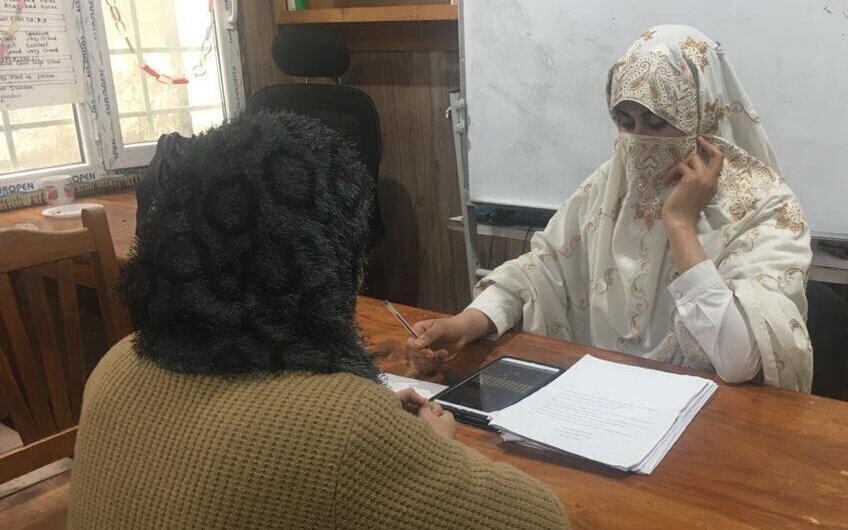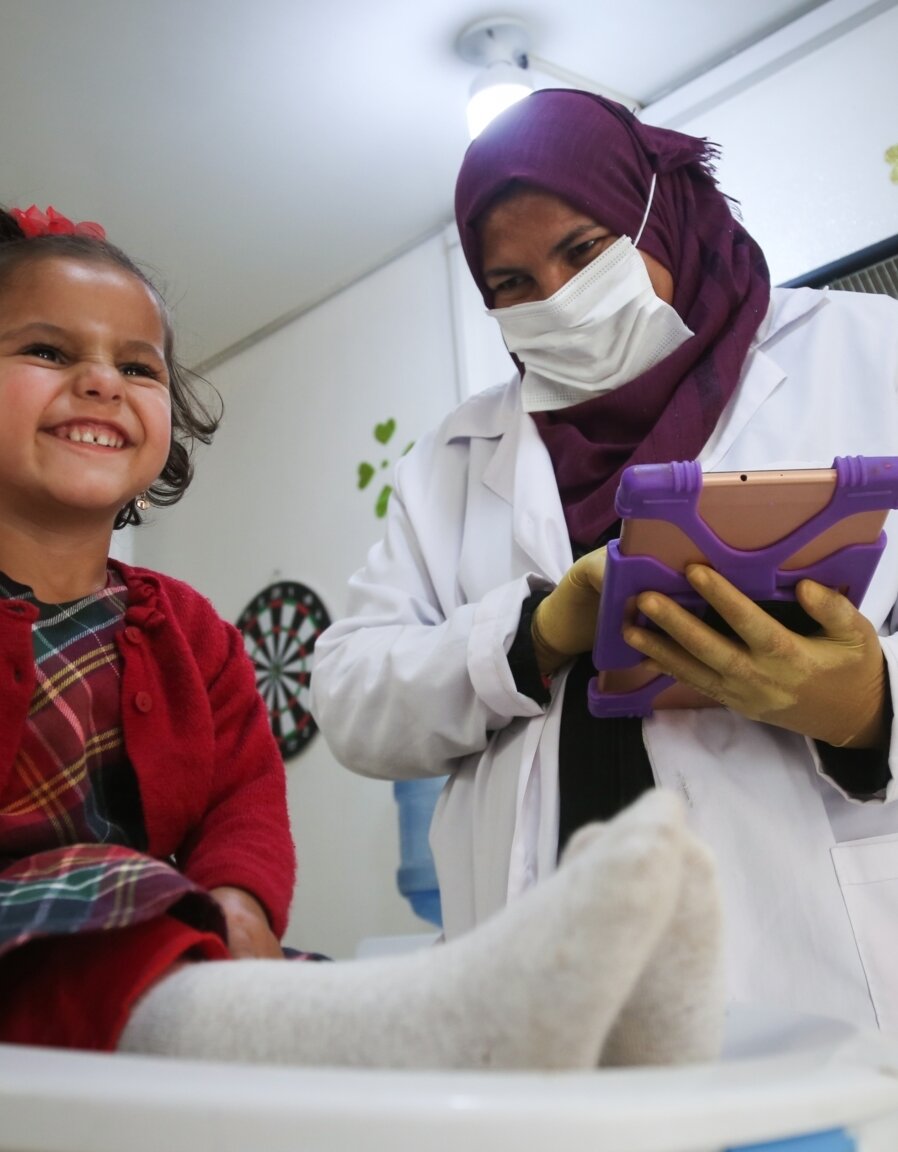In conflict zones, female field researchers, with their ability to access women-only spaces, build trust within communities, and conduct unbiased data collection, contribute to more effective research, particularly on issues related to women and children.
In conflict zones where every piece of data can be a lifeline, female field researchers and enumerators emerge not just as contributors but as crucial changemakers. Their contributions extend beyond gathering data; they provide essential insights that drive effective and gender-sensitive conflict resolution and developmental strategies.
Despite facing unique challenges, these women navigate the challenges in conflict-affected areas with resilience, bringing to light the nuanced impacts of war, fragility, and instability on vulnerable populations. This blog underscores the pivotal role of female field researchers in conflict zones, highlighting their unique advantages, the necessity for gender-sensitive research, and the critical support systems required to amplify their impact.
Why Female Field Researchers are Crucial for Conflict Research
Conflict research has long been dominated by male voices. But for a complete picture, a critical perspective is missing: that of women field researchers. Female field researchers bring a unique set of skills and experiences that uncover hidden aspects of conflict:
- Access to women-only spaces: Some cultures restrict access to certain spaces for men. Female enumerators can bridge this gap, gathering crucial information from women in segregated settings like homes, community centers, or religious institutions. This access allows for a more complete picture of the conflict’s impact, particularly on women and girls. For example, during research on healthcare access in rural Afghanistan, female researchers were able to directly interview women about their experiences with maternal health services within their homes, a space inaccessible to male researchers. This data revealed significant cultural barriers women faced in seeking care, leading to improved outreach programs for women’s health initiatives.
- Building trust with communities: Women researchers can often establish trust more readily with communities, particularly those where violence has disproportionately impacted women. Shared experiences of gender dynamics can create a rapport, encouraging open communication and fostering a sense of safety for participants. For instance, female researchers would be better able to engage with women or girls on issues of sexual harassment and safety concerns.
- Unbiased data collection: Unconscious bias can creep into research conducted solely by men. Female researchers bring a different perspective, potentially uncovering gender-specific issues that might otherwise be overlooked. This fosters a more nuanced understanding of the conflict’s impact on vulnerable communities.
Enumerator Insight: Amina Hussaini’s Reflections
Amina Hussaini, an enumerator from Afghanistan’s Ghor Province, Taiwara district, working with Adroit Associates, shares a memory from her fieldwork that encapsulates the highs and lows of conducting surveys in conflict zones. “One of my best memories from conducting this survey is that I once went to a village, and an older man insisted I take a picture of him with his wife and publish it somewhere,” she recalls. Obliging, Amina used her phone to take a photo, bringing immense joy to the man. Yet, her experiences were not without hardship. She reflects on a somber realization: “My unpleasant memory of the survey was when I figured out that because of the poor economic situation of the people, they did not have access to media and other means of communication to draw the world’s attention to their needs; It made me very sad.”
This account vividly illustrates the dual nature of field research in such areas — the unique opportunity to connect deeply with individuals and simultaneously confront the harsh realities of their lives. Amina’s experiences underscore the critical role female enumerators play in bridging gaps not just in data collection, but in human connection and empathy.
Beyond this, female field researchers offer a deeper understanding of the conflict’s impact, particularly on vulnerable populations. Women researchers are often acutely attuned to the specific needs of women and children and can identify issues like lack of access to childcare, education, or mental health services that might be missed by male researchers.
They may also have a better understanding of cultural norms and sensitivities, allowing them to navigate research situations more effectively and collect data that is culturally relevant. If a female researcher discovers that women are hesitant to discuss certain issues in front of male researchers due to cultural norms, they can conduct separate interviews with women to gather more accurate data.

Contributions to Recovery-Efforts and Policymaking
The need for gender-sensitive approaches in conflict research is undeniable. It ensures that the distinct needs and experiences of women and girls are not just noted but actively inform the research agenda. Female researchers are at the forefront, ensuring that research methodologies are designed to capture gender-specific data accurately. In contexts like Syria, where the conflict has disproportionately affected women, female-led research initiatives have been instrumental in tailoring humanitarian responses to address issues like displacement and access to healthcare.
Female field researchers ensure sensitive data collection. They ask targeted questions, like childcare options for job training programs, or access to hygiene products often overlooked by male researchers. Building trust with women allows them to uncover hidden realities: the fear of violence fetching water, or domestic abuse unseen by men. This approach leads to more effective recovery programs.
The absence of gender-sensitive data collection can lead to skewed policies that fail to address the needs of all affected by conflict. Female researchers are the bridge between flawed data and effective solutions. They challenge assumptions about gender roles and ensure that the research captures the diverse experiences of everyone affected by conflict.

A Personal Journey: Habiba Paikan Shares Her Experience
Habiba Paikan, an enumerator with Adroit Associates in Afghanistan’s Bamyan Province, brings a personal perspective to the narrative of female field researchers and enumerators working in conflict zones. “As one of Adroit’s female enumerators, I feel that it is my duty to work extra hard to show that we can be as effective as anyone,” she states. Habiba’s commitment to reaching female respondents, often underrepresented in research, drove her to make an extra effort to connect with women across different communities.
“Through the course of the project, I had the pleasure of getting to know women from all walks of life,” Habiba reflects. She recounts the resilience and diversity of these women — some leading their households, working in fields, foraging in mountains, and more, showcasing the spectrum of roles women assume in their communities. Yet, alongside these stories of strength and resilience, she also encountered tales of struggle and despair, prompting her to reflect on her own life.
Support Systems and Resources
The challenges faced by female field researchers in conflict zones necessitate robust support systems and resources tailored to their unique needs:
- Mentorship Programs: Establishing mentorship programs that connect new enumerators/researchers with experienced mentors who can offer guidance, share insights from their own work in similar environments, and provide emotional support. This one-on-one relationship fosters a nurturing environment where female field researchers can learn, grow, and navigate the complexities of their roles.
- Conflict Sensitivity and Gender Analysis Training: Training in conflict sensitivity and gender analysis equips female field researchers with the skills to conduct their work effectively while being mindful of the delicate dynamics in conflict zones. This training should cover how to approach sensitive topics, engage with vulnerable populations, and capture data through a gender lens.
- Access to Networks: Providing female field researchers with access to networks of fellow researchers is invaluable. These networks offer a platform for sharing experiences, strategies, and advice, fostering a sense of community and solidarity. They can be a lifeline in situations where female field researchers face challenges unique to their gender or need advice on navigating specific issues in conflict-affected areas. These networks can take various forms, from online forums and social media groups to conferences and workshops, making them accessible to women in even the most remote or dangerous locations.
- Resources and Tools: Equipping female field researchers with the right tools and resources, including access to the latest research and data collection technologies, secure communication tools, and resources for personal safety, such as safety training and psychological support. The support systems and resources provided to female researchers in conflict zones must be comprehensive, multifaceted, and responsive to their unique challenges.
Conclusion
Female field researchers in conflict zones not only provide critical insights into the lived experiences of women and children but also ensure that post-conflict recovery efforts are rooted in the realities of those most affected. Investing in and supporting them is not just beneficial but essential for building peace and resilience in conflict-affected societies.
Research organizations, aid agencies, and policymakers must prioritize and implement strategies that empower these women, recognizing their indispensable contributions to our understanding of conflict dynamics and the pathways to peace. By securing dedicated funding, providing specialized training, and fostering inclusive research environments, female researchers can be equipped, supported, and valued for their work. Such investments not only advance gender equality within the field of conflict research but also enhance the quality and impact of the research outcomes.

